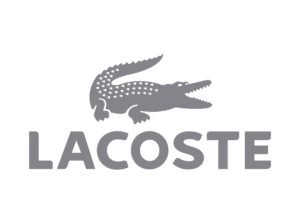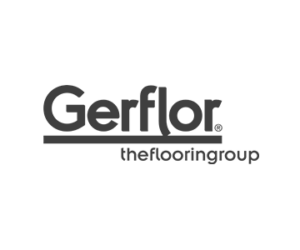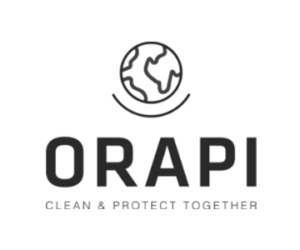
Consumer Goods Consulting
As these sectors strive to stay competitive and keep their edge, KEPLER provides crucial support in overcoming significant challenges such as innovative model revamping and the deployment of agile, robust operational methods across their organizations.
The FMCG sector is characterized by rapidly evolving consumer expectations and an urgent need for profitability and sustainability.
KEPLER has identified four major tensions that consumer goods and FMCG players face to preserve the value and reputation of their brands and maintain their profit margins while meeting the growing expectations and demands of the market.
1- Responsible Innovation and Environmental Impact
How do we balance consumers’ demand for rapidly renewed offerings with the necessity to adhere to brand values and commitments while driving revenue and margin growth?
- In a globalized and saturated market, consumer goods and FMCG players, aware of CSR challenges and driven by consumer expectations, have extensively committed to virtuous efforts to reduce their environmental footprint by rethinking the pace of innovations and prioritizing those that offer real added value to the consumer
- In response to this approach, other players regularly flood the market with new products, thereby catering to consumers’ appetite for novelty
- This ambivalence in consumer expectations creates strong tensions among the most environmentally conscious manufacturers.
2- Sustainability, Compliance, and Performance
Committing to CSR transformation, respecting increasing regulatory constraints while balancing cost competitiveness and product performance improvement.
- The pressure is intensifying on FMCG companies to adopt sustainable practices
- Consumers are increasingly aware of environmental issues and favor brands that demonstrate a real commitment to sustainability
- Companies must also ensure compliance with frequent legislative changes, particularly regarding health, safety, consumer protection, and sustainability
- The entire value chain must be rethought to integrate these requirements and maintain competitive selling prices without compromising on the quality and performance of products in highly competitive global markets
3- Enriched Customer Experience and Digital Personalization
How to create an enriched and personalized customer experience in a digitalized world?
- Digitalization is radically transforming the way companies interact with their customers. The focus is on improving the customer experience through digital channels by using data to personalize the offering and optimizing purchase journeys, all while fully respecting GDPR requirements”
- Industrials in the consumer goods and FMCG sector must capture relevant information and integrate solutions and technologies such as artificial intelligence to analyze consumer behaviors and predict trends, thereby enabling a response to rapid market changes
4- Omnichannel and Brand-Consumer Connection
How can traditional and alternative distribution channels, including Direct-To-Consumer (DTC), be seamlessly integrated to establish or strengthen the connection between the brand and its consumers?
The evolution of consumer behavior and the emergence of Digital Native Brands (DNVB) encourage brands to explore new distribution channels, including Direct-To-Consumer (DTC), while optimizing traditional channels for maximum market coverage.
OUR STRATEGIC SUPPORT
- Acceleration of product life cycles to continuously anticipate customer expectations, adapting to market evolutions and inflation contexts
- Rationalization of new product launches: identifying references with high added value for consumers and focusing innovation and development resources on these references
- Increasing agility of supply chains, which must prove their resilience and flexibility in an uncertain and volatile environment
- Efforts to maintain a global margin level in saturated markets where traditional growth levers are limited: market demand, price adjustments, etc…
- Optimization of innovation and development processes, reducing Time to Market through AI and digitalization, while maximizing the value of innovation for brand positioning, Brand Equity, and differentiation
- Supporting organizations to align teams and guide them through a profound reconsideration of traditional development and product launch patterns
- Integrating sustainable development challenges at the heart of the value chain: choosing partners, measuring the impact across the entire chain
Responsible Innovation and Environmental Impact
- Increasing regulatory pressures for the adoption of more sustainable practices from production to packaging through to product distribution: carbon footprint reduction, waste management, recycling, use of sustainable and renewable materials… as well as safety standards, environmental labeling, and restrictions on the use of certain products
- Integrating sustainability into the core of business strategies, from eco-design to sourcing raw materials, through to more environmentally friendly packaging, sustainable production, and supply chains
- The need to transform operational models to incorporate sustainable sourcing practices while measuring the effectiveness of these changes
- Strong competition from products that are minimally or weakly committed to CSR practices, offered at aggressive prices”
- Revisiting the historical business model of FMCGs based on producing large volumes at the lowest cost to achieve an attractive selling price
- Supporting organizations and teams to include circularity issues across the entire value chain by identifying opportunities and developing appropriate operational solutions
- Guidance towards eco-design and innovation in packaging, minimizing environmental impact. Identifying decision criteria (carbon footprint calculation, CSR score, etc.)
- Co-development of sustainable supply chains: supporting evaluation and control processes of suppliers, securing supply chains based on ESG criteria from source to factory
- Enhancing brand image, in alignment with the company’s CSR convictions
- Aligning teams to reconcile various, sometimes contradictory constraints: consumer expectations, marketing vision, convictions of the R&D and CSR teams, shareholders
Sustainability, Compliance, and Performance
- The necessity to differentiate from competitors through a distinctive and loyalty-enhancing ultra-personalized customer experience
- Consistency of the brand universe across all customer touchpoints: store, digital, platforms, and others
- Leveraging data potential to develop a tailored offer and customer experience
- Development of innovative digital strategies for enhanced customer engagement
- Prediction of consumer behaviors using advanced technological tools
- Incorporating CSR considerations during the purchasing, delivery, and usage phases of products
Considering and analyzing Data as a strategic asset: our expert teams analyze and utilize data to optimize customer journeys at points of sale and in e-commerce, and to enhance customer relations
- Implementation of analytical tools to consider weak signals and anticipate trends
- Customer knowledge through the effective use of data
- Effectiveness of customer touchpoints: at points of sale, during interactions, in real-time (digital Touch Point at points of sale / Showroom vs. traditional sales points)
- Voice of Customer approaches and ‘customer satisfaction’ strategies
- Optimization of assortments with the highest customer and business value added
- Market research (France and international) and analysis of the ‘go-to-market’ strategy (prescription, distribution, etc.)
- Network studies (site locations, competition, catchment areas, white zones, etc.)
- Diagnostics of brand (re-)positioning.
Enriched Customer Experience and Digital Personalization
- Collection, aggregation, and utilization of customer data for enhanced and multi-channel consumer knowledge
- Development of new customer relationship models
- Deployment of new commercial organizations
- Overhaul of traditional delivery schemes to adopt sustainable and economically viable solutions, tailored to the Direct-to-Consumer (DTC) approach
- Global competitive study to identify the marketing channels used by competitors
- Detailed analysis of customer journeys to identify the most relevant channels and develop an omnichannel strategy that ensures a consistent and personalized customer experience, thereby increasing loyalty and sales
- Presence and consistency of brand expression at every customer touchpoint by collecting maximum data
- Collection and analysis of data to enhance customer knowledge and tailor the offer and customer experience as finely as possible
































